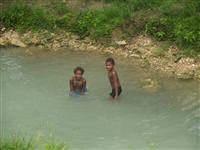
This course allows students to gain a qualification based on both work experience and study
Students select environmental management modules that best meet their needs. A "specialist" qualification, designed to provide "additional" training in areas of environmental management where the student has not previously been involved. This allows you to broaden your attraction to employers; or to strengthen your capacity to perform in work which you are already involved with.